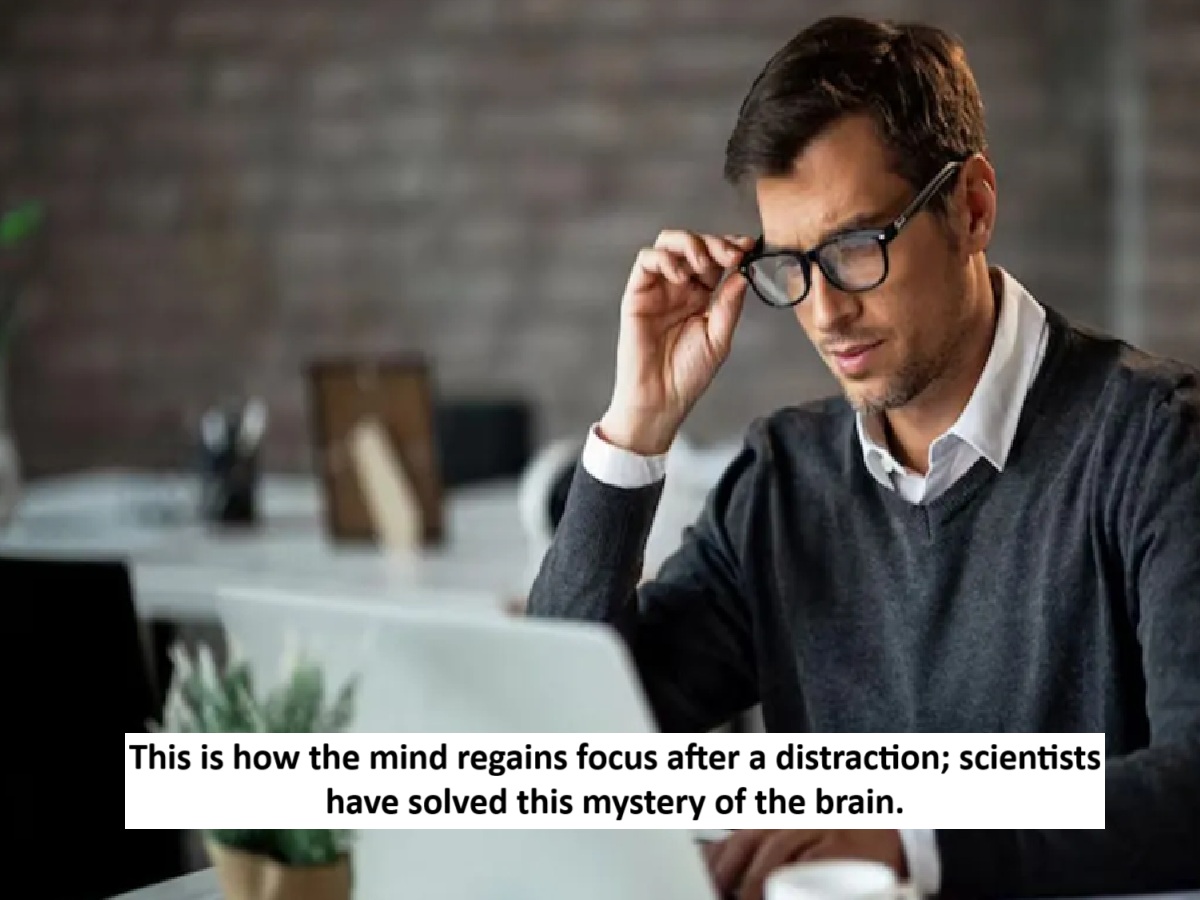
News Topical, Digital Desk : A person studying or doing some other mental activity is often heard saying, "Don't bother me... I'm having difficulty concentrating. I can't get my work done." Meaning, my concentration is getting distracted.
But it's also interesting to understand how distraction helps us regain focus and complete a task. A recent study analyzed this process in the brain.
It suggests that neurons in the prefrontal cortex produce coordinated rotating waves that help focus attention and return to the task at hand after being distracted.
Researchers at the Massachusetts Institute of Technology (MIT) in the US analysed electrical activity in the prefrontal cortex of monkeys, which is known to help with higher-level tasks, including focusing attention.
The findings, published in the Journal of Cognitive Neuroscience, describe a rotating wave in the brain that is highly coordinated by neurons in the cortex to help a person's thought processes return to the right direction. According to Earl K. Miller, a professor at MIT's The Picower Institute and Department of Brain and Cognitive Sciences, the rotating waves act as shepherds, steering the cortex back onto the correct computational path. This rotation represents the recovery of the monkeys' activity state following a distraction.
The researchers explained that the monkeys were asked to perform a visual task, but sometimes faced two types of distractions while they were trying to remember an object. The distractions affected the animals' performance, causing them to either make mistakes or have slower reaction times on the task. Where the animals made no mistakes during the distraction, the researchers observed a "full circle," indicating that recovery was complete.
Where mistakes occurred, the rotating brain wave path failed to form a perfect circle by an average of 30 degrees. Wave speed was also slower during mistakes, which may explain the lack of recovery from distraction.
Furthermore, the researchers found that recovery was better if more time passed between the onset of a distraction and the person feeling the need to return to the task. The brain needs that time to mathematically complete the cycle and return to the behaviorally correct direction.
The study authors say cortical activity reflects the ability to recover from distractions. The study analyzed neural activity from the prefrontal cortex of monkeys performing working memory tasks and processes such as processing mid-memory delay distractions. Rotations were more complete when the task was performed correctly, while this was not the case when mistakes were made.
Read More: Poor sleep and obesity are contributing factors to breast cancer! ICMR issues this warning to women
--Advertisement--

 Share
Share



